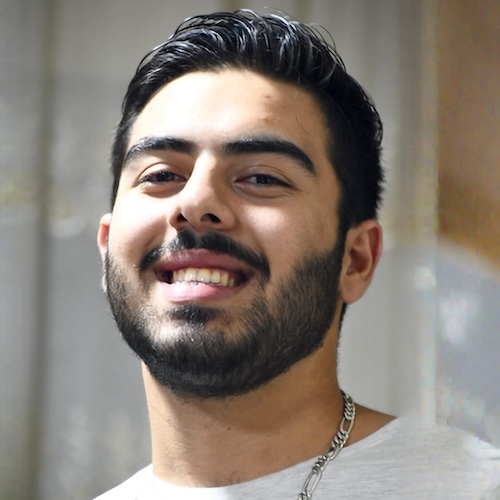Yousef R. E. Babish BScOT, BLS(He/Him/His)
As a PhD student, my diverse background deeply influences my research and professional pursuits. I am a Middle Eastern and Christian occupational therapist from Palestine, with experience working with a varied patient population. My Western-based education, combined with my experiences from a marginalized Palestinian community marked by occupational injustice, deprivation, and apartheid, has profoundly shaped my perspective.
These experiences have broadened my understanding of the social determinants of health and underscored the need to challenge entrenched policies while advocating for holistic, person-centered care. My research interests are driven by a commitment to exploring the intersection of identity and mental health disparities. I am particularly focused on how social and cultural identities—such as race, gender, class, sexuality, and disability—interact to affect mental health outcomes at the community level. This intersectional approach illuminates the multifaceted barriers faced by marginalized communities, including limited access to healthcare, exacerbated health issues, and constrained physical activity, which contribute to secondary mental health challenges like collective trauma, chronic conditions, and complex grief.
In my research journey, I have investigated the influence of cultural and gender norms on occupational therapy practices in Palestine. A small-scale qualitative project, conducted over the course of two years in collaboration with local occupational therapists, aimed to understand how clients’ cultural values are integrated into therapeutic interventions. The discussion highlighted the theoretical necessity for cultural humility in occupational therapy, advocating for alignment with local values and addressing resource limitations to ensure effective service delivery. It also underscored the need for further research in occupational science and therapy that addresses the distinct needs of marginalized populations.
Looking ahead, I am dedicated to continuing my research and contributing to advancements that promote equitable and culturally informed healthcare services.
Education
Bachelor of Science (BSc)
in Occupational Therapy
2023 | Bethlehem University, Palestine
Selected Publications
Babish, Y., El-Hallaq, M., & Simaan, J. (2024, July). The Tent of Hope: Occupational therapy and participation in war-torn Gaza. Occupational Therapy Now, 27(4), 30-32. Full text Show abstract
The present war on Gaza forced a brutal reset for countless lives. Dreams, homes, careers, and daily routines have all been severely disrupted (Laurence, 2024). Before the war, occupational therapist Mahmoud El-Hallaq was building a pediatric clinic in Gaza. Yet, on October 7th, 2023, everything changed. Now, in the makeshift Khan Younis refugee camp, he contends with daily uncertainty, chasing after basic necessities (Parvaz & Baba, 2024). Mahmoud was determined to rebuild what was destroyed — for himself and for others. In this piece Mahmoud is joined by his coauthors, Yousef and Juman, to tell the story of The Tent of Hope, which was established in Rafah as an example of our collective power to resist ongoing traumatic and unjust conditions in and with the community.
Babish, Y. R., Nammoura, L., & Abu-Asabeh, K. (2024). The effects of culture and gender on occupational therapy practice for adults: From Palestinian therapists’ perspective. Occupational Therapy In Health Care. Advance online publication. https://doi.org/10.1080/07380577.2024.2366331 Show abstract
As the occupational therapy profession is rooted in Western ideals, it may encounter complexities in culturally traditional settings like Palestine, especially for adults. This study reveals the challenges faced by occupational therapists in Palestine. A phenomenological qualitative approach was used, interviewing six experienced female therapists using semi-structured interviews. Purposive sampling ensured a diverse participant selection. Thematic analysis revealed several key themes, such as the continuous adaptation to Western practices to fit the Palestinian context, the value of interdependence, and the unique life balance. Results show that cultural and gender norms significantly shape occupational therapy practices in Palestine. The discussion emphasizes the theoretical necessity for cultural sensitivity in occupational therapy, advocating alignment with local values and addressing resource limitations for effective service delivery.
Keywords. Adult settings; cultural characteristics; gender; occupational therapy; palestine; therapists
Awards
Certificate of Excellence for Highest GPA in Class | Spring 2023
Bethlehem University
Dr. Marcello and Mrs. Martine Bisotti Annual Scholarship Recipient | 2020–2023
Bethlehem University’s Higher Education Representatives in the USA
Certificate of Excellence for Highest GPA in Class | Spring 2022
Bethlehem University
Honorary Shield of Service Award for Class Representation | 2021
Bethlehem University
⋯






